By Simon Craig
Until weapons technology made it redundant, the infantry square was a most effective and versatile formation. It needed no ditches or palisades; it could stand its ground, advance, or retreat; and it could offer a wall of fire on all four sides. For a force engaged in open country with an enemy superior in numbers but deficient in firepower, it was the only way. Small wonder that it was the infantry square on which, when the natives became restless, the British Empire relied in the 19th century.
When one native army managed to break it, the feat was notable enough to merit a celebrated poem by Sir Henry Newbolt. The first verse describes the exciting finish to a school cricket match, and then the action switches to a battlefield. Newbolt, echoing the Duke of Wellington, clearly believed that the Battle of Waterloo was won on the playing fields of Eton:
The sand of the desert is sodden red,—
Red with the wreck of a square that broke;—
The Gatling’s jammed and the colonel dead,
And the regiment blind with the dust and smoke.
The river of death has brimmed his banks,
And England’s far and honour a name,
But the voice of a schoolboy rallies the ranks,
“Play up! play up! and play the game!
(As we shall see, the gun in question was a Gardner rather than a Gatling, but let us not split hairs.)
At the Height of the British Empire
After a hundred years in which the horrors of war have, in one way or another, become familiar to all, Newbolt’s verse now sounds naive, even comical. But in the high noon of empire, the British people in general thought of war as an exciting game in which heroic little bands of Redcoats won brilliant victories over hordes of savages—who remained at a very safe distance from England’s shores. Some hordes of savages, however, were more dangerous than others, and the followers of Sudan’s Mahdi in the 1880s were among the most dangerous of all.
In the Arab world it was a time of colonial domination and militant Islam; in Britain it was the late Victorian era of superpower status. On the other side of the Atlantic, Chester A. Arthur was the unlikely American president. Robert E. Lee had been dead for a decade, and Ulysses S. Grant, ruined by his business partners, was working on his memoirs, the sale of which was to provide for his family. Thomas Edison was ensuring that electricity would be the power of the future, Hiram Maxim was inventing the first fully automatic machine gun, Mark Twain was writing Huckleberry Finn. The West was all but won, traffic was horse-drawn, and fashionable women wore bustles that suggested elephantiasis of the bottom.
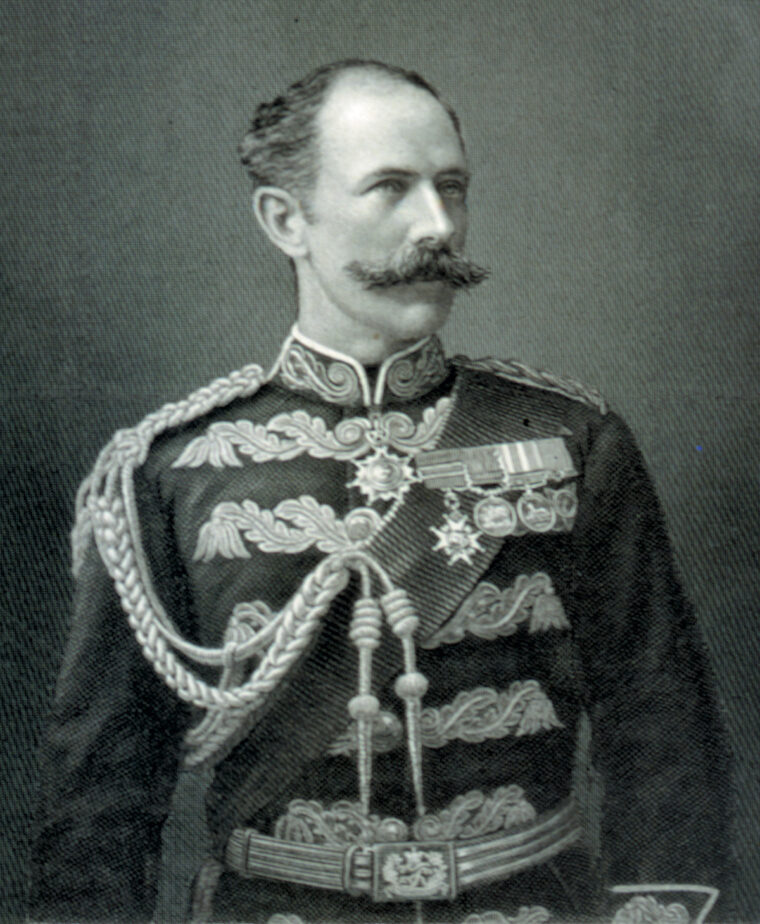
But some things never change, and Clausewitz’s dictum that war is the continuation of politics by other means was as true then as it is now. In the case of the expedition that a somewhat unwilling British government sent to relieve General Charles Gordon in the Sudanese capital Khartoum in the fall of 1884, the politics were particularly involved. Sudan was a province of Egypt, itself part of Turkey’s Ottoman Empire but now effectively under British control.
In the 19th century, the Ottoman Empire was in terminal decline and, long before Gordon went to Khartoum, had more or less given up any pretense of controlling events in Egypt. As the Egyptian economy declined in the second half of the century, the westernizing tendencies of a corrupt ruling class led in 1881 to an uprising that threatened the installation of a nationalist government. This brought about British intervention, because the economic chaos threatened European interests, while the Suez Canal, the imperial lifeline that linked Britain with India, could not be allowed to fall into potentially hostile hands.
Prime Minister Gladstone, the arch-anti-imperialist, tried hard to avoid involvement, but his hand was forced. In 1882, a British expedition under General Sir Garnet Wolseley invaded Egypt and won a crushing victory over the insurrectionists at Tel-el-Kebir. Henceforth, the reality of British rule would be veiled only thinly by the pretense that Egypt still ran her own affairs.
“Mad Mahdi”
London thus took over Cairo’s problems, one of the thorniest of which was Sudan. The truth was that, by this time, Egypt did not really control Sudan any more than Turkey really controlled Egypt. Cairo had long misgoverned her province, and the land was now in a state of revolt. The rebel leader was Mohammed Ahmed, a quintessentially Middle Eastern Islamic figure known to all as the Mahdi, the “promised leader,” whose coming was to herald a new era of righteousness. Today we would call him an Islamic fundamentalist. At the time he was “the mad Mahdi,” as far beyond the comprehension of most Europeans as Ayatollah Khomeini a century later.
It is worth pausing at this point to observe that, in the Middle East, religion is nationalism. Where the cultural identity of Westerners is a matter almost exclusively of nationhood, that of Middle Eastern Muslims has at least as much to do with religion. What appears to the West to be religious mania is seen there as something very close to patriotism. One of the chief motivations for the Mahdi and his followers was resentment against the power and influence wielded in Khartoum by Westerners and westernized Egyptians.
For Britain, Sudan was really an unnecessary encumbrance. Gladstone certainly did not want it, and when, in early November 1883, the Mahdi’s army of Dervishes destroyed an Egyptian force of 10,000 under the command of a British officer, General Hicks, London decided to cut its losses and pull out altogether. The only trouble was that there remained, mostly in Khartoum, military and civilian representatives of the Egyptian government who could expect no mercy if the Mahdi were to gain total control. Evacuation was therefore essential, and the sooner the better. London, however, showed little sense of urgency, and it was not until mid-February 1884 that Charles Gordon finally arrived in the Sudanese capital.
The Extraordinary Charles Gordon
Gordon was an extraordinary man. Now in his early fifties, he was known as “Chinese” Gordon because of his spectacular success in leading the so-called Ever-Victorious Army (before his time, it would have been better named the Usually Defeated Army) against the Taiping rebels in China in the 1860s. He had also seen previous service in Sudan, where he was known as a bitter opponent of slavery. Gordon might today be considered a religious fanatic, always quite convinced that, whatever he chose to do, it was the will of God that he should succeed. He was in fact almost the perfect counterpart of the Mahdi. He was also a hero in the eyes of the British people.
His ability was in no doubt, but Khartoum in 1884 was becoming a very dangerous place, and he was expected to accomplish an extremely delicate task almost single-handedly. To make matters worse, his brief was not clear. Of those involved in drawing it up, some maintained that he was charged only with preparing a report on the situation; others that he was fully empowered to evacuate all servants of the Egyptian government. What Gordon himself thought is even now impossible to say with certainty. But he knew as ever that he would be right, whatever he chose to do. An ill-defined mission suited him perfectly.
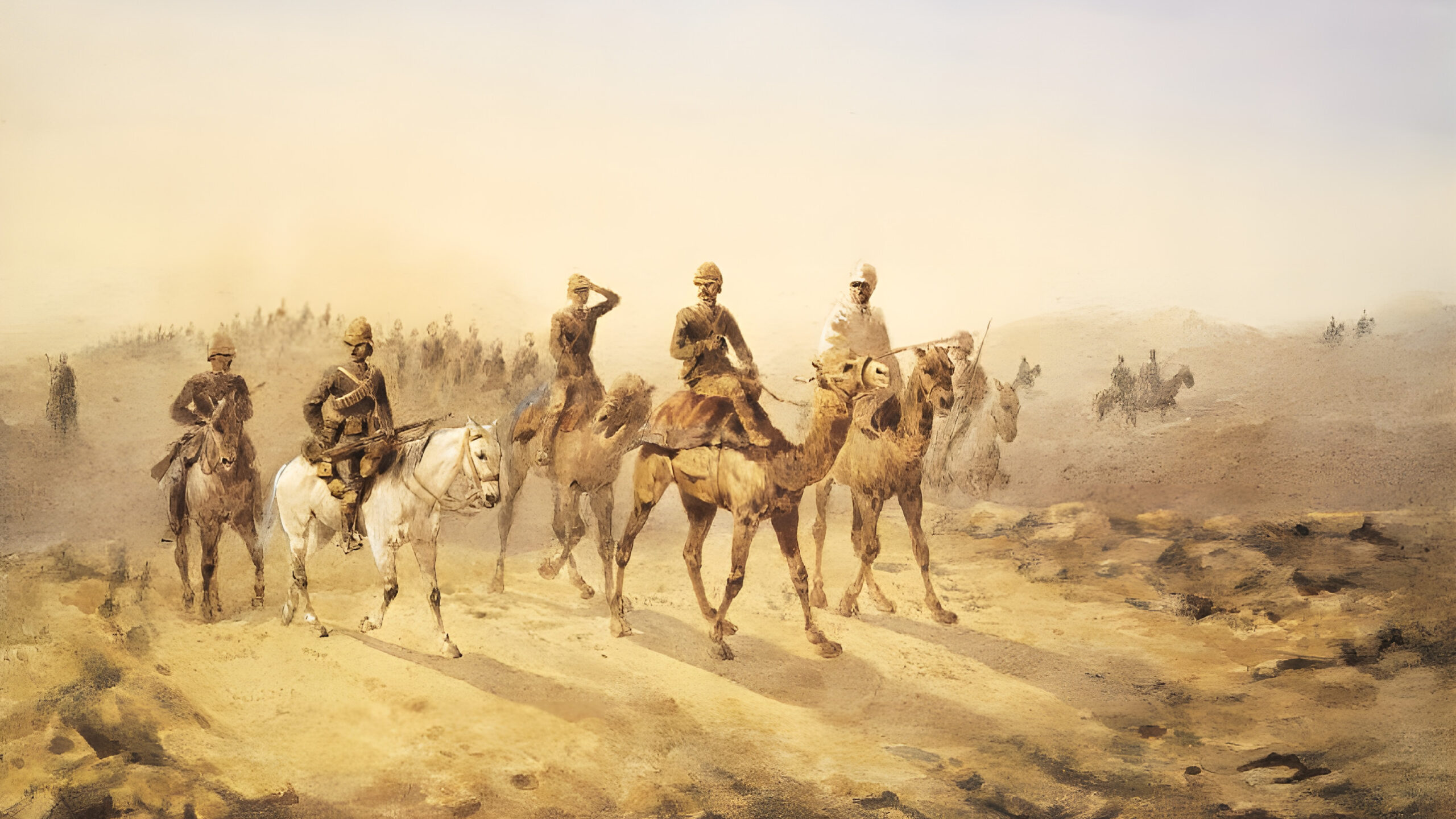
What he, in fact, did was the one thing that nobody—except perhaps Gordon himself—had ever intended. Having arrived in Khartoum, he simply stayed there. With the insurrection growing in strength all the time, the city was surrounded by the Mahdists within a month of his arrival, and Gordon, far from being a solution to the problem, had now become part of it.
An evacuation might still have been possible, for Gordon’s armed steamers make him master the river itself. He should have been able to extricate himself simply by employing one of these. This, however, he refused to do, instead devoting himself with energy and skill to organizing the Egyptian garrison in the defense of the city. And the longer he remained there, the tighter became the ring around it.
Public opinion in England became inflamed: Chinese Gordon was in peril of his life, besieged in a foreign city by fanatical savages. He had to be rescued. But Gladstone was not moved, and succeeded for several months in doing nothing but looking into the possibilities. To him, the Mahdi’s Dervishes were not savages, but a people “rightly struggling to be free,” and he was quite happy to allow those who were determined to rescue Gordon to expend their energies arguing over the best way of doing it.
And argue they did, at length and in detail. The most bitter dispute concerned the route that should be taken. There were essentially two possibilities: a force could be sent to Suakin on Sudan’s Red Sea coast then across the desert to Berber, and finally up the Nile to Khartoum; or a force could be sent from Egypt, by river all the way.
200 Miles Across a Hostile and Waterless Desert
To the layman simply looking at the map and knowing the problems posed by the dangerous Nile cataracts, there seems to be no doubt that the Suakin route is preferable. Berber, after all, is 666 miles by river from Wadi Halfa on the Egyptian border, but only 245 from Suakin, while joining the river at Berber cuts out all but one of the five cataracts between Wadi Halfa and Khartoum. But it was not quite that simple. Getting to Suakin might pose few problems—the Mahdi, after all, had no navy—but the desert march across to Berber was a different matter entirely. Marching 200 miles across hostile territory in a waterless desert was no small undertaking. A sufficiently determined attack by the Dervishes might prove disastrous.
What decided the argument in favor of the Nile route was the appointment of Sir Garnet Wolseley to lead the expedition. Sir Garnet was Queen Victoria’s greatest general, with a long record of unbroken success behind him. Immortalized by Gilbert and Sullivan in their comic opera The Pirates of Penzance as “the very model of a modern Major-General,” Wolseley had been partial to rivers ever since his spectacular defeat of the Red River uprising in Canada in 1870. He had used the river all the way, and now saw the Nile as his most important ally in any attempt to rescue Gordon. With Wolseley in charge, the Suakin route never stood a chance.
In the end, Gladstone was overruled, and a relief expedition was authorized. But it was not until September 1884, by which time Gordon had already been under siege in Khartoum for six months, that Wolseley arrived in Cairo. By this time, communication with the besieged city was dangerous and unreliable, and it was clear that he would have to move fast.
Everyone wanted to go on the expedition, and Wolseley was no doubt relieved that the Queen herself blocked the efforts of the Prince of Wales to come along. The most colorful figure in the force was Frederick Gustavus Burnaby, a cavalryman in his early forties. Tall and elegant, Burnaby was essentially an adventurer, best known for A Ride to Khiva (1876), his account of a remarkable journey across the steppes of central Asia. He had also crossed the English Channel in a balloon, and was a talented linguist. When Burnaby discovered that there was action to be had in Sudan, he virtually appointed himself to the expedition.
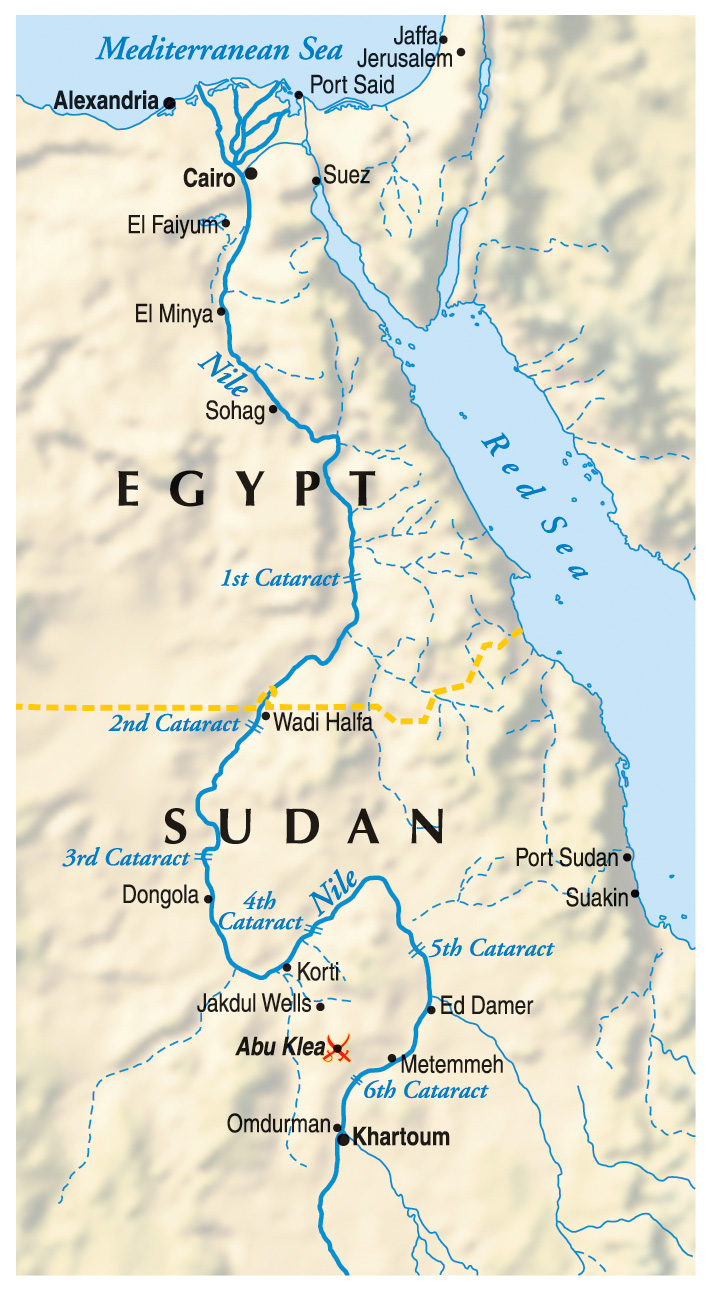
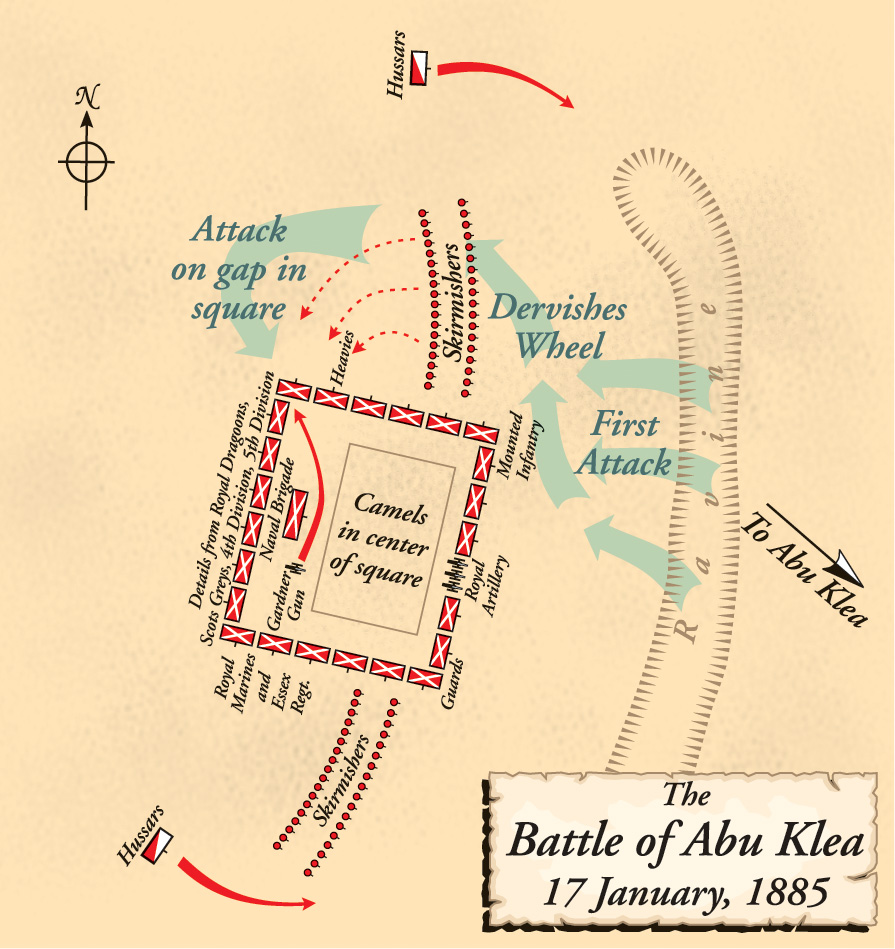
The jumping-off point for the British force was Wadi Halfa on the Egypt-Sudan border some 900 river miles and five dangerous cataracts north of Khartoum. Under his command Wolseley had 11,000 men, but most of these would hold strategic points along the route. Only a fifth of the total was expected to go all the way to the Sudanese capital.
The British Sorted Through the Details of Battle
The logistical task was immense. The steamers of Thomas Cook were used to equip the expedition with vast quantities of bully beef (1,608,500 tins), ship’s biscuit (1,359,400 lbs.), condensed milk (16,656 tins), and so on. There were even 1,030 bottles of champagne, for Victoria’s officers did not like to go without their luxuries. Then there were the 800 boats, whalers chosen in England, each 30 feet long but with the required shallow draught of only two feet six inches. Remembering his success in the Red River campaign, Wolseley recruited 400 Canadian voyageurs to handle them.
Camels were, of course, essential. In all, nearly 8,000 would be used, but many more would have been welcome. Wolseley found that they were simply not available locally in anything like the quantity and quality he had expected. They were naturally to be used as beasts of burden, but also as the chargers of the Camel Corps. Composed of cavalrymen from different regiments, most of whom scarcely knew what a camel looked like before they arrived in Egypt, the Camel Corps gave Wolseley’s force an extra dimension.
In the face of great difficulties, they did reasonably well to reach Korti—more than halfway from Wadi Halfa to Khartoum as the crow flies, but much less as the river bends—by mid-December. By this time, however, lines of communication with Gordon were highly tenuous, and it was clear that Khartoum might already be in extremis. Wolseley therefore decided to expedite matters by sending a column across the desert to Metemmeh, thus cutting out a great eastward loop of the river and saving potentially vital days.
This was where the Camel Corps came in. With infantry support, their task was to rendezvous with armed steamers that Gordon would send to Metemmeh. And to take over these and any other useful vessels that might be available, a Naval Brigade under Lord Charles Beresford constituted an important part of the force.
In command of this desert column was Sir Herbert Stewart, an experienced officer who enjoyed his commander-in-chief’s total confidence. Morale was high as he led his men out of camp at Korti on December 30, 1884, but the additional camels Stewart lacked were about to make their absence felt.
A Costly Delay for Stewart
The 176 miles to Metemmeh were to be taken in three stages, there being water on the route only at Jakdul Wells and at Abu Klea. Had Stewart been able to accomplish the journey in a straightforward manner, it seems unlikely that the Dervishes would have been able to get a significant force into position to oppose him. But the lack of camels forced him to encamp at Jakdul Wells then return to Korti to pick up more supplies. The delay was to cost him very dearly.
The waterholes at Jakdul Wells were not defended, but when he reached Abu Klea on the evening of January 16, 1885, Stewart found a Dervish force of some 12,000 between his own 1,500 men and the wells. It was already too late to fight that day, so he formed a zeriba, a defensive enclosure of stones and thorns, some three miles from the wells. The battle would have to wait.
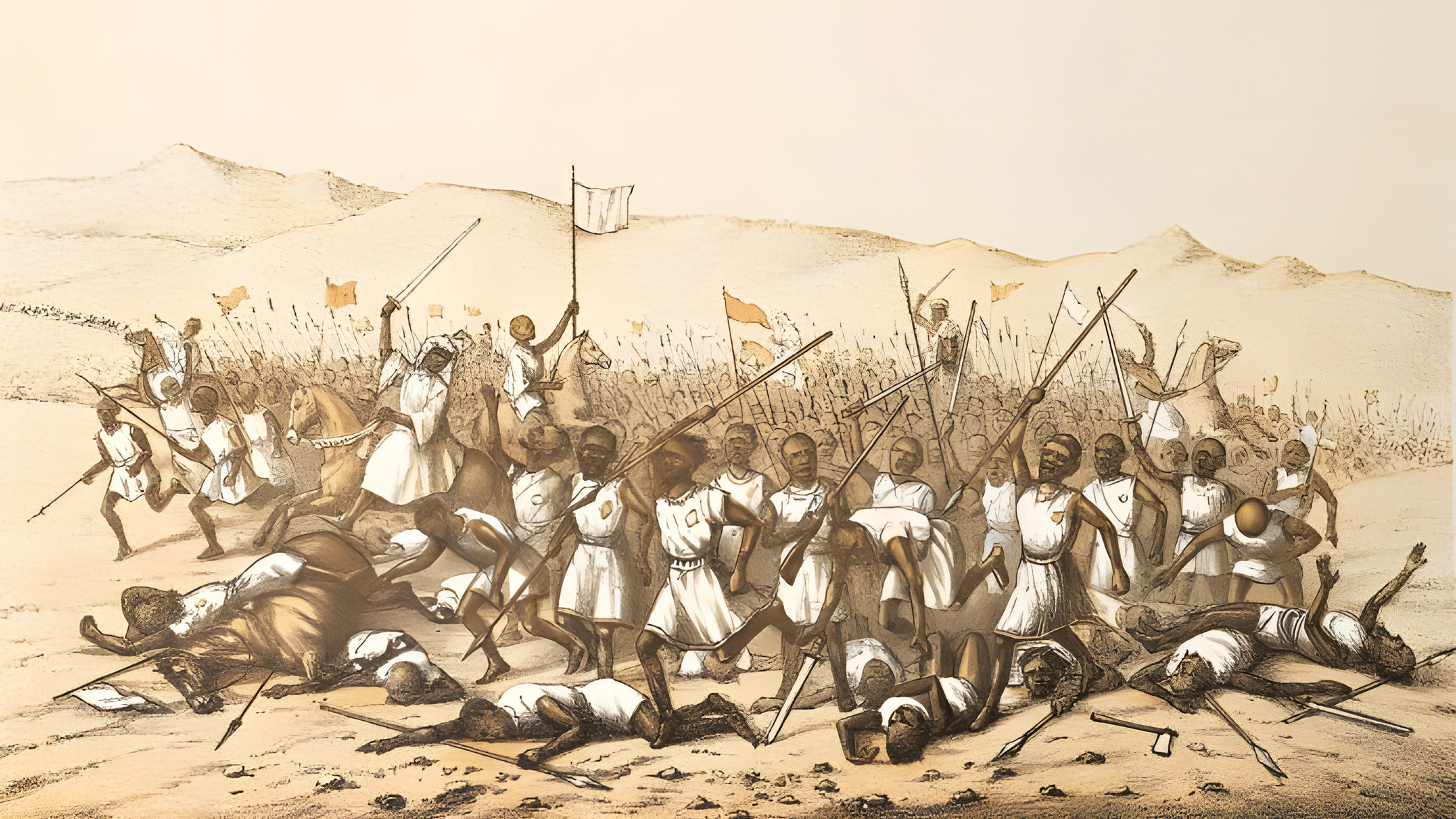
After breakfast on the morning of the 17th, Stewart made his dispositions. Leaving a small force to guard the stores in the zeriba, he drew up the bulk of his men in a large square, with camels in the middle. At 10 o’clock the unwieldy mass began to move toward the precious water. Progress over the uneven ground was painfully slow, hampered considerably by the camels and by the heavy, five-barreled Gardner gun being dragged along by sailors of the Naval Brigade. The front face of the square frequently had to slow down or stop in order to prevent the formation from breaking up completely.
At first the watching Mahdists contented themselves with taking pot-shots from long range. These had some effect, but it would have been contrary to their nature for the Dervishes not to launch a full-scale attack. The square had been making its lumbering progress for an hour when the moment came. A large force of the Mahdi’s men leaped from their concealed position in a ravine half a mile to the front and left of the British formation. Yelling wildly, they charged the front left corner of the square in a trident formation, each phalanx being led by an emir.
A Gap in Formation—The Dervish Strike Swiftly
Stewart was not greatly alarmed, for this was what he had expected. These men, armed only with spears, knives, hatchets, and knobkerries, would have no chance against the disciplined volleys with which he would greet them. But then it happened. The Dervishes, in perfect order, suddenly wheeled away and passed the left flank of the square, heading for the rear corner on that side. They had seen a gap.
Now any break in an infantry square was a very serious matter: if a continuous wall of fire is not presented all around, then a determined enemy may break through. What had gone wrong?
It seems safe to say that, had Stewart’s force been made up solely of infantry, no gap would have appeared, and the Battle of Abu Klea would have been a less dramatic affair altogether—though still bloody for the unfortunate Mahdists. But in addition to the increasingly unhappy and frightened camels, the square contained cavalrymen and sailors who, despite a certain amount of training in infantry tactics, did not have the instincts of the infantryman.
Stewart himself was a hussar, and this may account for his decision to allow skirmishers to fight around the square. Although entirely necessary to discourage any attack on the zeriba, their presence outside the slowly moving body of men now caused considerable difficulties. When the Dervishes charged, the skirmishers fled for the safety of the square, making for the rear left corner, where they blocked the line of fire of their own comrades.
It may be that that part of the formation was already insecure, but it now became positively ragged as a portion of the corner wheeled outward, apparently to give the stragglers covering fire. Such a maneuver would certainly never have been contemplated by an experienced infantry commander, but the officer who gave the order was a cavalryman. It was Frederick Burnaby. The safe return of all the skirmishers bar one—who paid the price of corpulence when he was caught and speared—did not justify Burnaby’s action. When he realized the danger, he seems to have tried to countermand his original order, but it was too late.
Breaking the British Square
To make matters worse, Lord Charles Beresford of the Naval Brigade chose to wheel the Gardner gun out front in order to obtain a freer field of fire. The effect of this—another decision which would not have been made by a real infantryman—was to lengthen and weaken an already-tenuous line. And the Dervishes were getting closer all the time. The gun, as unreliable as it was unwieldy, fired only some 70 rounds before jamming. The yelling Dervishes closed in, and before the mechanism could be freed, they were on it. Of its crew, only Beresford himself survived.
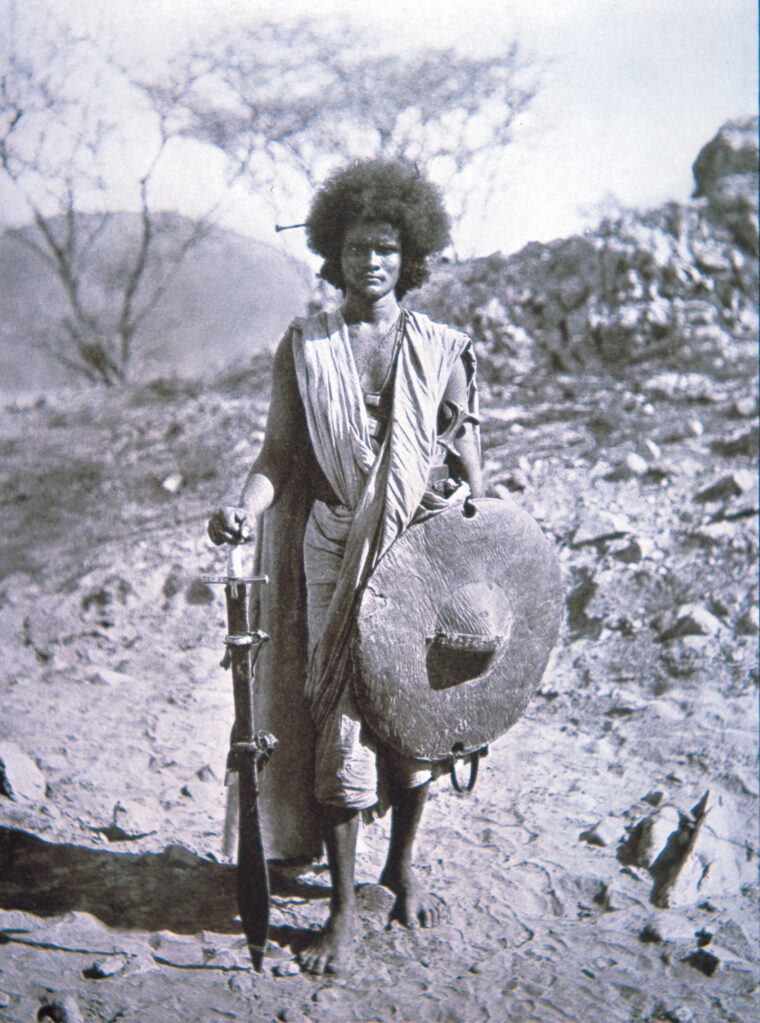
The damage was done: with the terrified camels adding to the chaos, the Dervishes broke the square. The most impressive figure to penetrate it was an old sheikh on horseback, who succeeded in planting his banner in the middle, before being shot down while calmly chanting verses from his Koran.
The press was tremendous. Beresford, after his narrow escape when the Gardner was overrun, was in the thick of it. He later likened it to “the crush of a theatre crowd alarmed by a cry of fire.… Immediately facing me was an Arab holding a spear over his head, the staff of the weapon being jammed against his back by the pressure behind him. I could draw neither sword nor pistol.”
So the square was broken. If the breach could not be sealed, Stewart would have no hope against the odds he faced. But now the camels, whose presence had thus far favored the Mahdists, remembered whose side they were on. Without them, there would have been nothing to stop the Dervishes from breaking through completely. As it was, the middle of the square was effectively blocked, and the Dervishes who managed to get in were trapped between the camels in front of them and their own comrades behind. The breach was indeed sealed—by the very men who had made it.
The danger to the British was still acute, but it did not last long. With parade ground precision, the rear rank of the front face, which was not hard-pressed, turned to fire into the square. It was inevitable that the riflemen should hit some of their own comrades, but of the Mahdists who had broken in, not one emerged alive.
Only 10 minutes elapsed between the breaking of the square and its salvation, but they had been 10 very bloody minutes. Nine British officers and 65 other ranks lay dead, with still greater numbers wounded. And the Mahdists had, as was always the case when spearmen met riflemen, suffered very much more. Stewart’s men counted 1,100 Dervishes dead on the field. Having come so close to winning a brilliant victory, the Mahdi’s men had suffered a terrible defeat.
Heroic and Tragic Zeal for Battle
There was no doubt as to the most notable casualty on the British side. Burnaby had chosen to move outside the square and take on all comers. Unsurprisingly, there were rather too many Dervishes ready to accept the challenge, and the unfortunate colonel was mortally wounded by a spear-thrust to the throat. The Mahdi’s men had claimed the scalp of one of the heroes of Victorian England.
His death was soon commemorated in verse, for Sir Henry Newbolt was not the only noted poet to write of the battle. William McGonagall, renowned as the author of the most dreadful doggerel the world has ever seen, described the event with some accuracy:
Oh! it was an exciting and terrible sight,
To see Colonel Burnaby engaged in the fight:
With sword in hand, fighting with might and main,
Until killed by a spear-thrust in the jugular vein.
Poetry, however, would have been the last thing on Stewart’s mind as he marched forward to claim the wells for which he had fought so hard. The following day he moved on, but only to be brought to battle again, this time within sight of the river. It was in this second action that he received a wound which was to prove fatal. Command passed to Sir Charles Wilson, whose lack of experience in the field soon found him out. Showing insufficient urgency, he finally reached Khartoum in one of Gordon’s own steamers on January 28, just two days after the fall of the city and the death of the general.
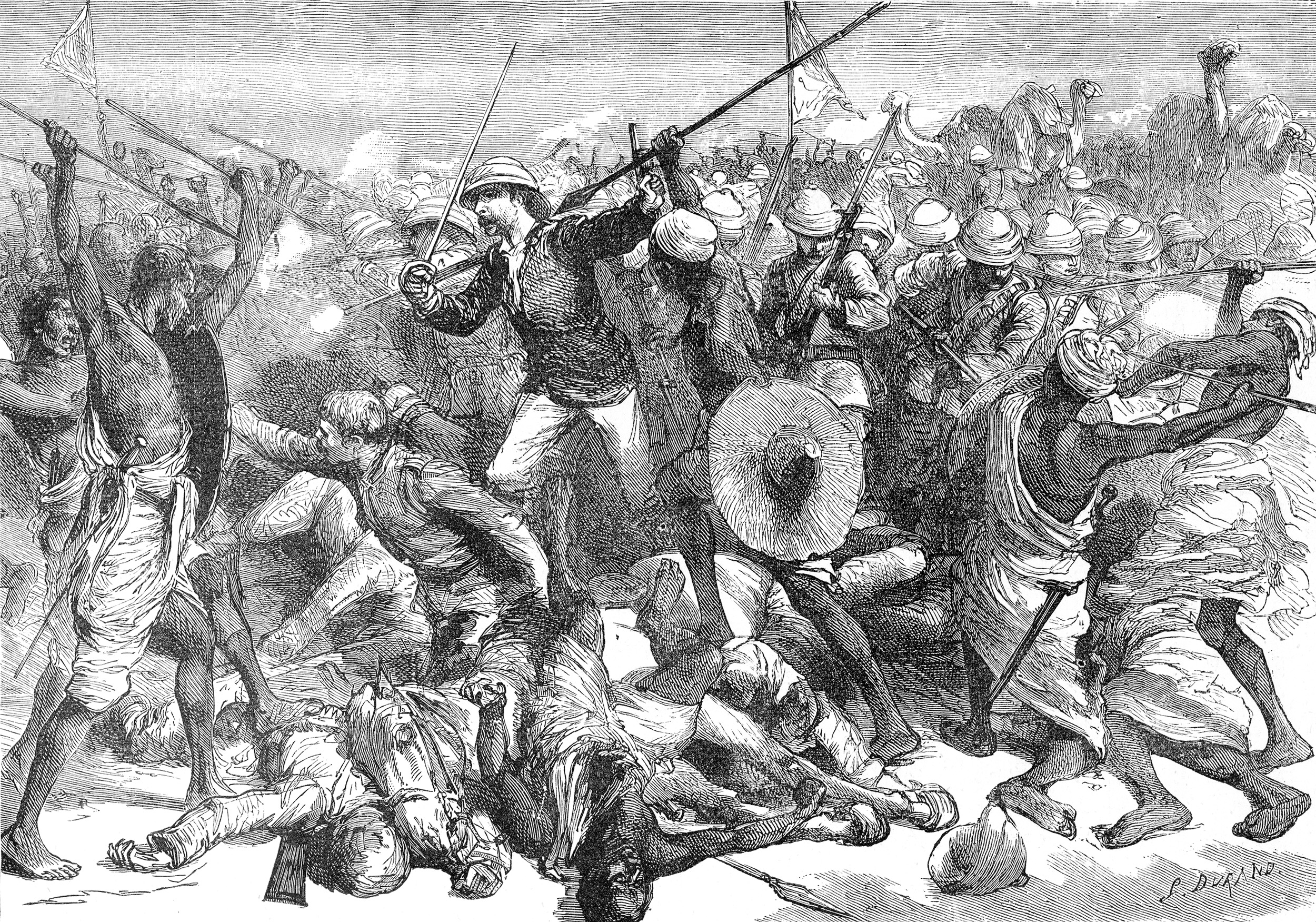
There was consternation, both among the men of the relief force and back home in England. Many wanted the expedition to avenge Gordon by breaking the Mahdi’s power completely. This, however, had never been the intention, and the relief force finally turned around and headed for home. Wolseley and others were honored for their efforts, but the truth was that they had failed completely. The Dervishes were to rule Sudan for the next 13 years.
The political fallout was immense. The entire British nation had waited breathlessly for news of Gordon’s rescue, and there was fury at his death. Most of it was directed at Prime Minister Gladstone. The leader revered as the Grand Old Man, or GOM, now became MOG—Murderer of Gordon. He was to lose power within a few months of Gordon’s death. There are times when a politician is best advised to bow to public opinion, however much he may disagree with it. Gladstone had refused to do so, and he paid the price.
It is only fair to say that, by any rational assessment of the situation, he was right to resist the elaborate rescue plan. Most commentators have remained silent on what was, to put it bluntly, the sheer absurdity of the whole project. For the expedition—difficult, dangerous, time-consuming, and extremely expensive—had as its sole object the rescue of just one man. There was another British officer in Khartoum who was also to be taken out, but his salvation was not the point.
When Gordon’s stubbornness got him into such difficulty, London’s only sensible response would have been to order him to return to Cairo by whatever means he could. He would almost certainly have disobeyed the order, but that would have been his business. The problem was, of course, that it would have been politically impossible for the British government to have taken such a line.
Mahdi’s Mark on the British Empire
The conclusion is irresistible: Gordon should never have been sent to Khartoum in the first place. When news of the Hicks disaster reached London, the order to evacuate Sudan should have been given immediately, and someone capable of obeying orders should have been sent to Khartoum to carry it out. To send instead someone who obeyed only those orders which were in accordance with his own notion of God’s will, was, to say the least, unwise.
Gordon’s martyrdom was probably quite satisfying to him. The exact manner of his death is not known for certain, but it is likely enough that the popular Victorian version is accurate—that he donned his white uniform and stood at the head of the palace steps, refusing to resist as he was hacked to death. His head was cut off and taken away as a trophy.
As for the Mahdi, Gordon’s death spoiled his whole day, for he had given strict instructions—though not strict enough, it would seem—that the English general was not to be harmed. He wanted him as his prisoner, and would certainly have made a determined and utterly futile attempt to convert him to Islam. At the very least Gordon would have made a useful bargaining counter in future negotiations with Cairo and London.
But it was not to be. The Mahdi transferred his capital from Khartoum across the river to Omdurman, from which he was allowed to govern his vast land without interference from Cairo or London until his death just a few months later.
The British Empire would not forget the Mahdi.
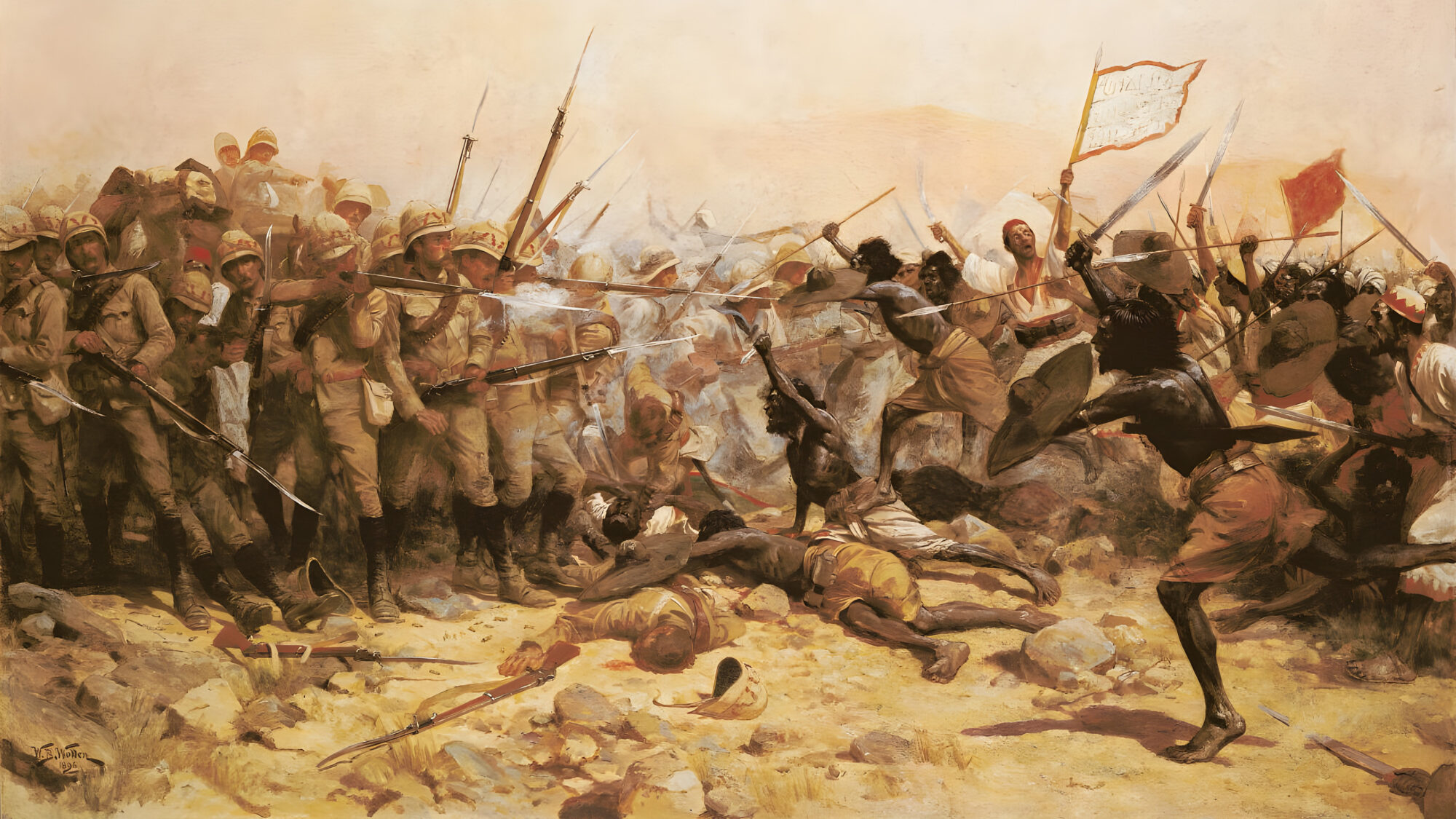
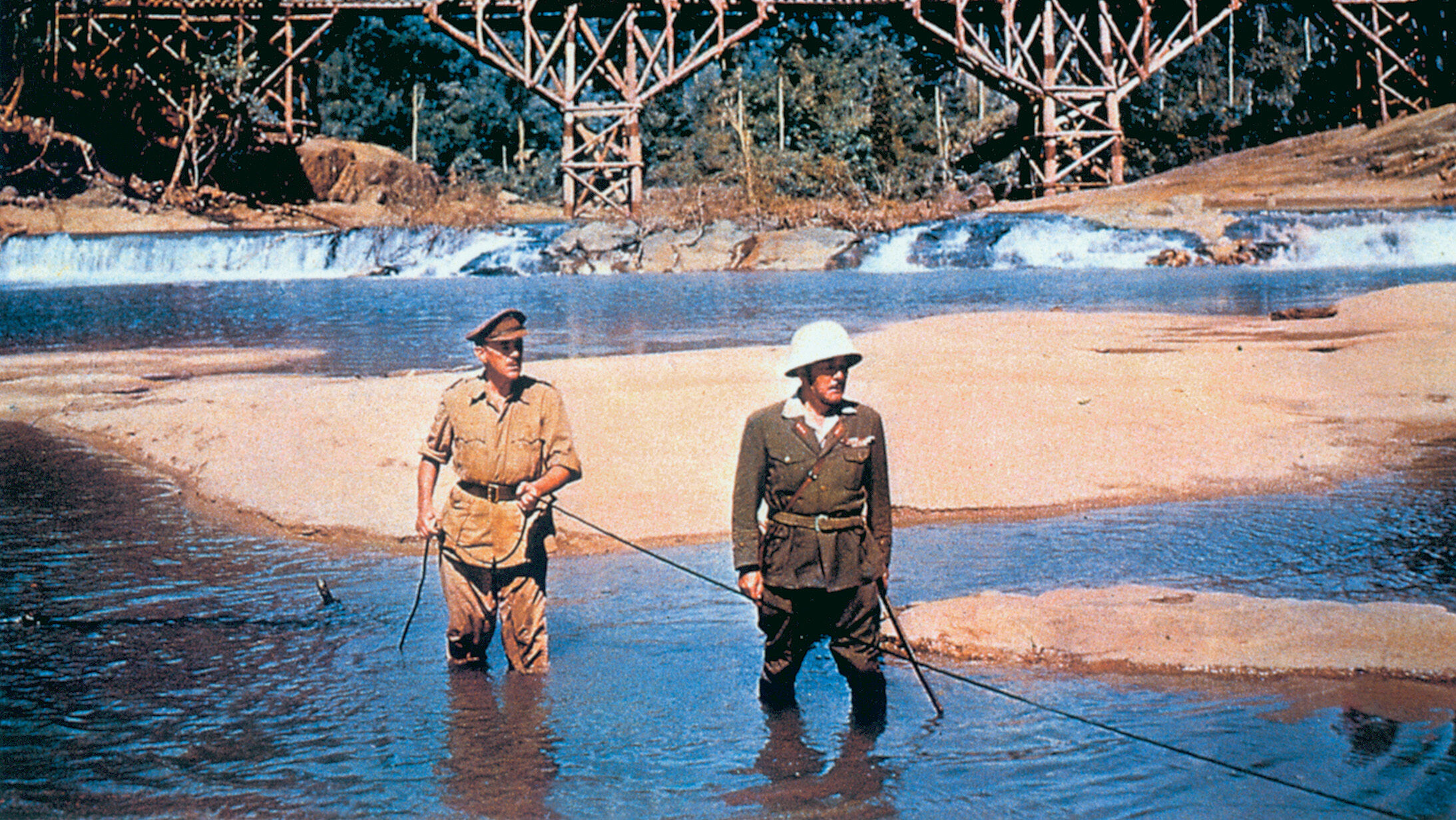
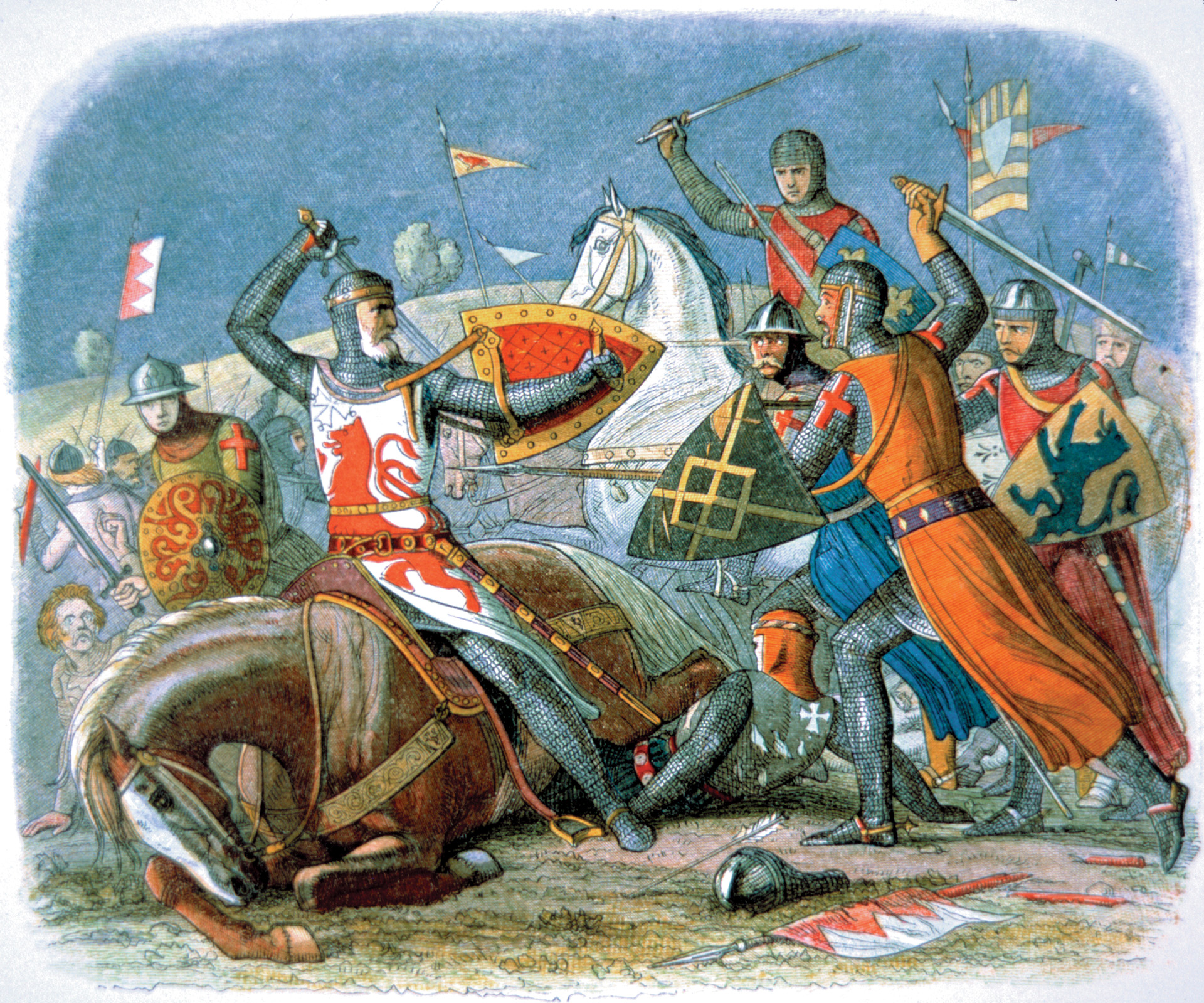
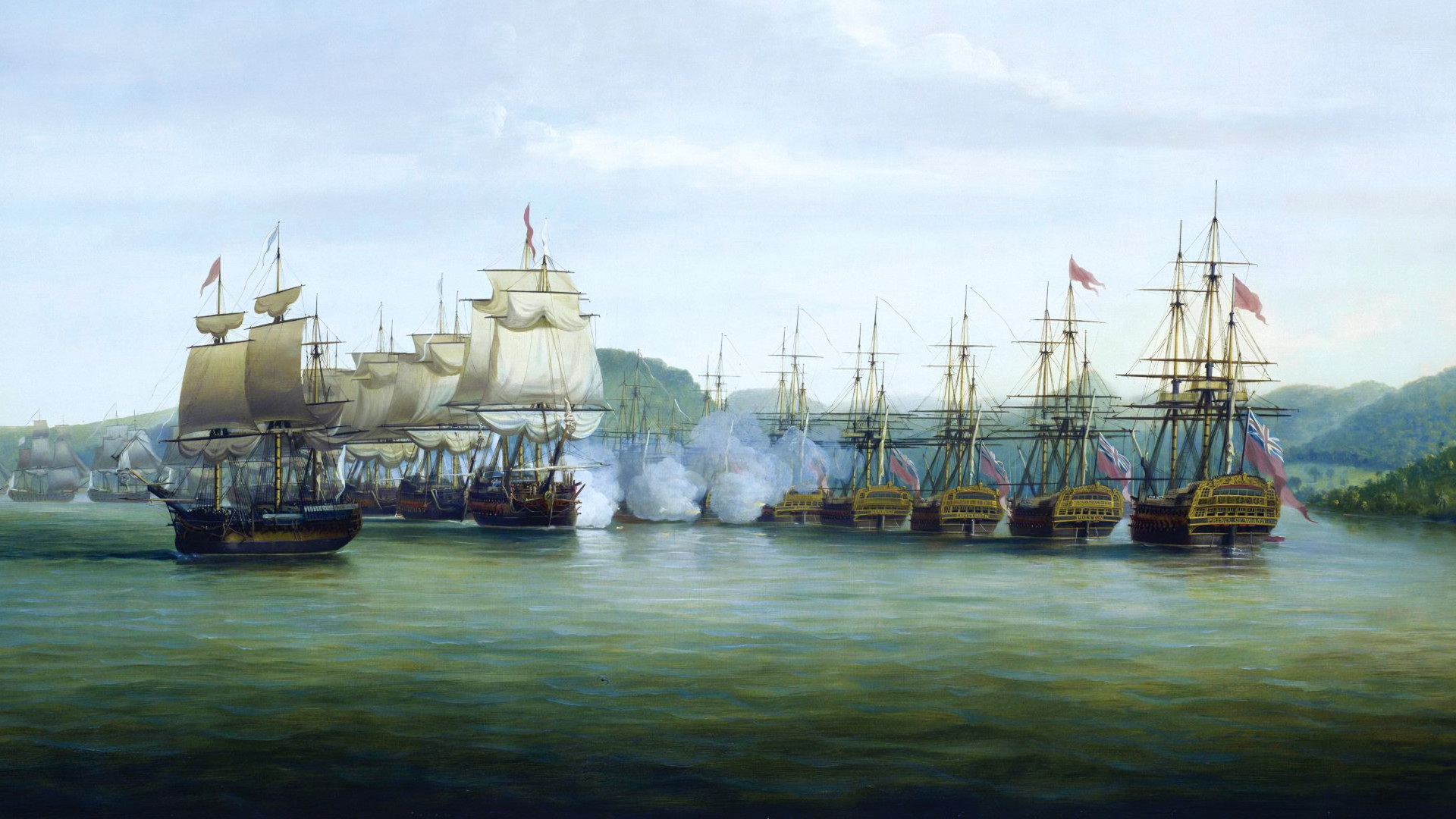
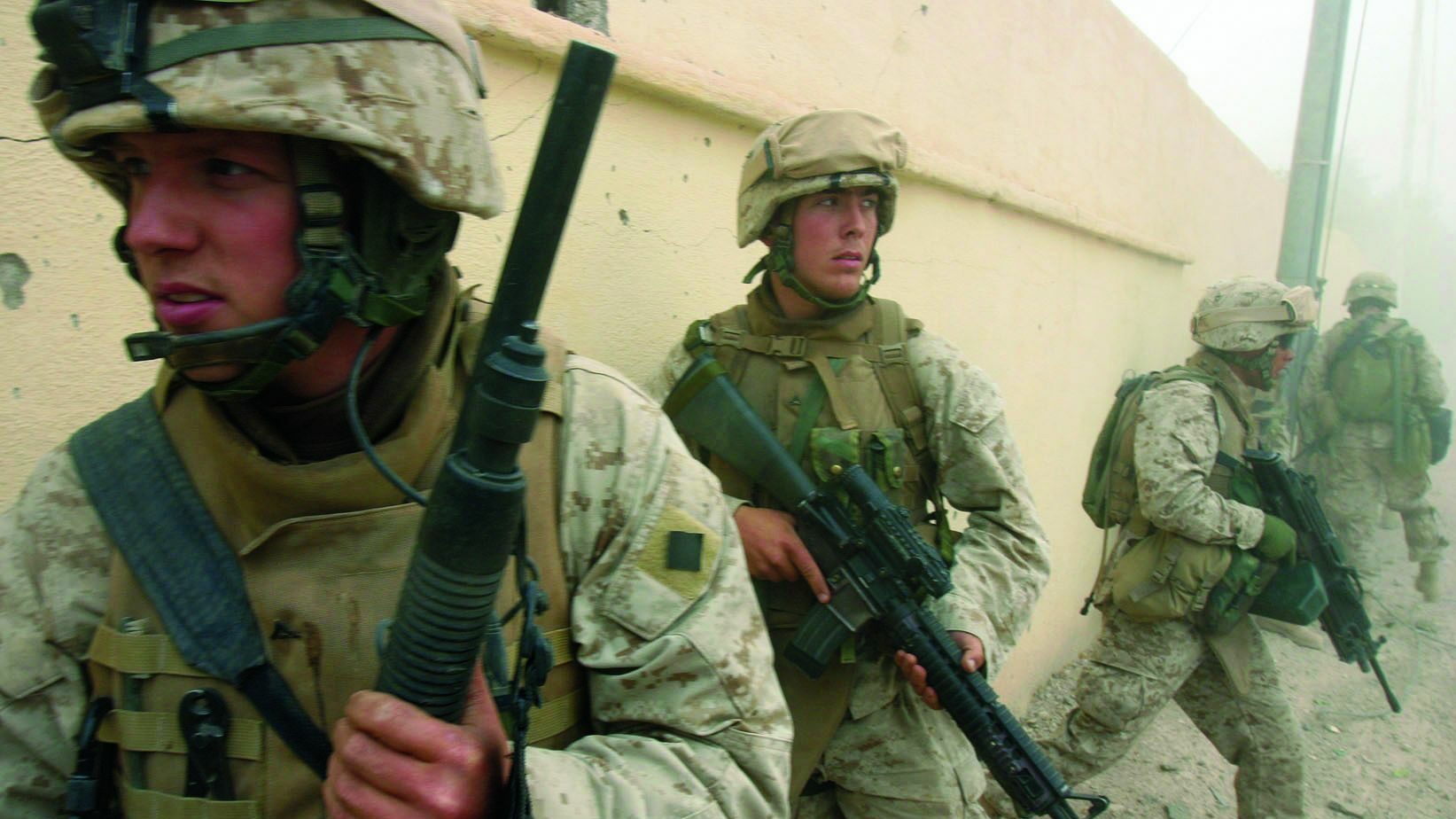
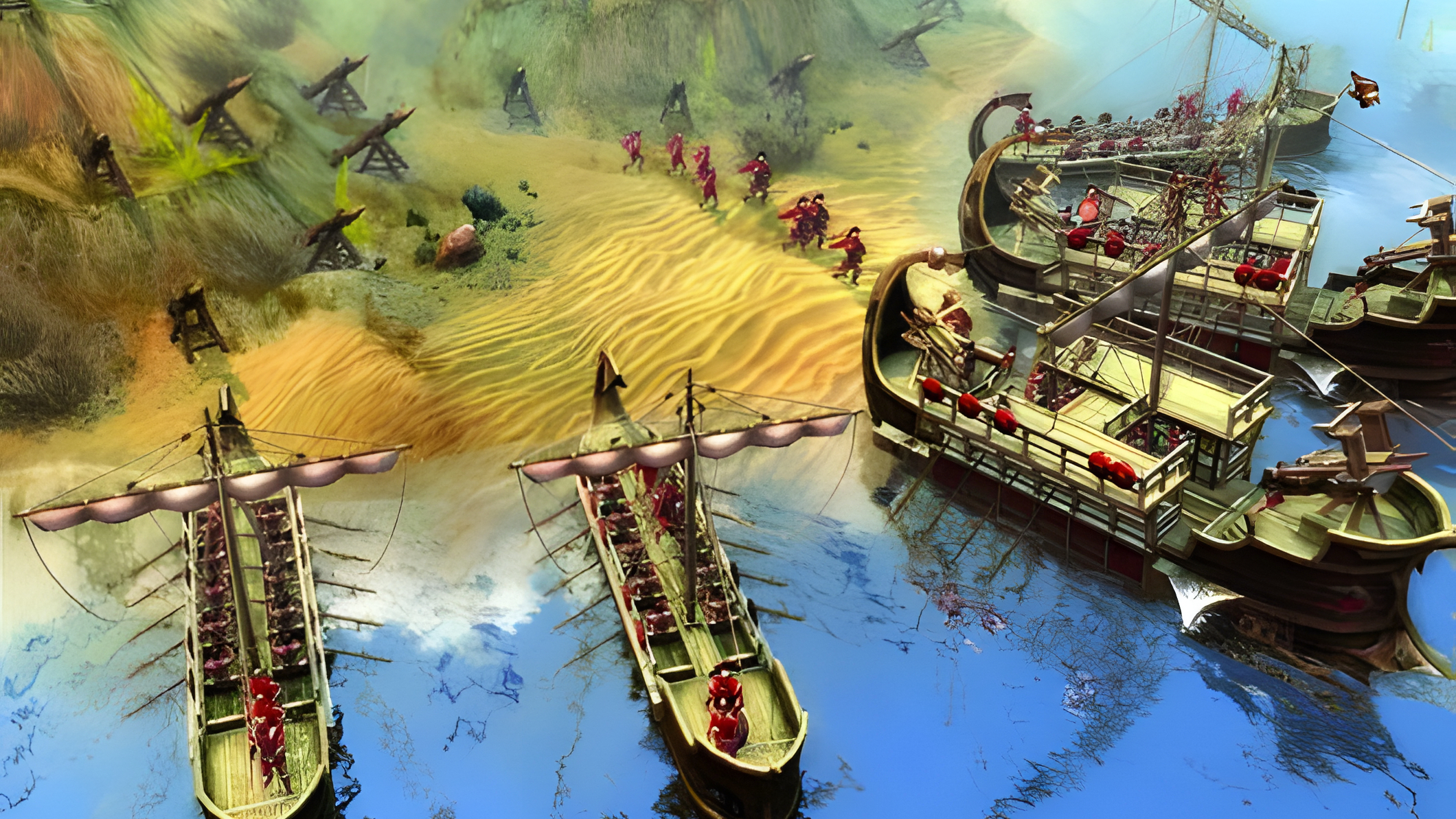
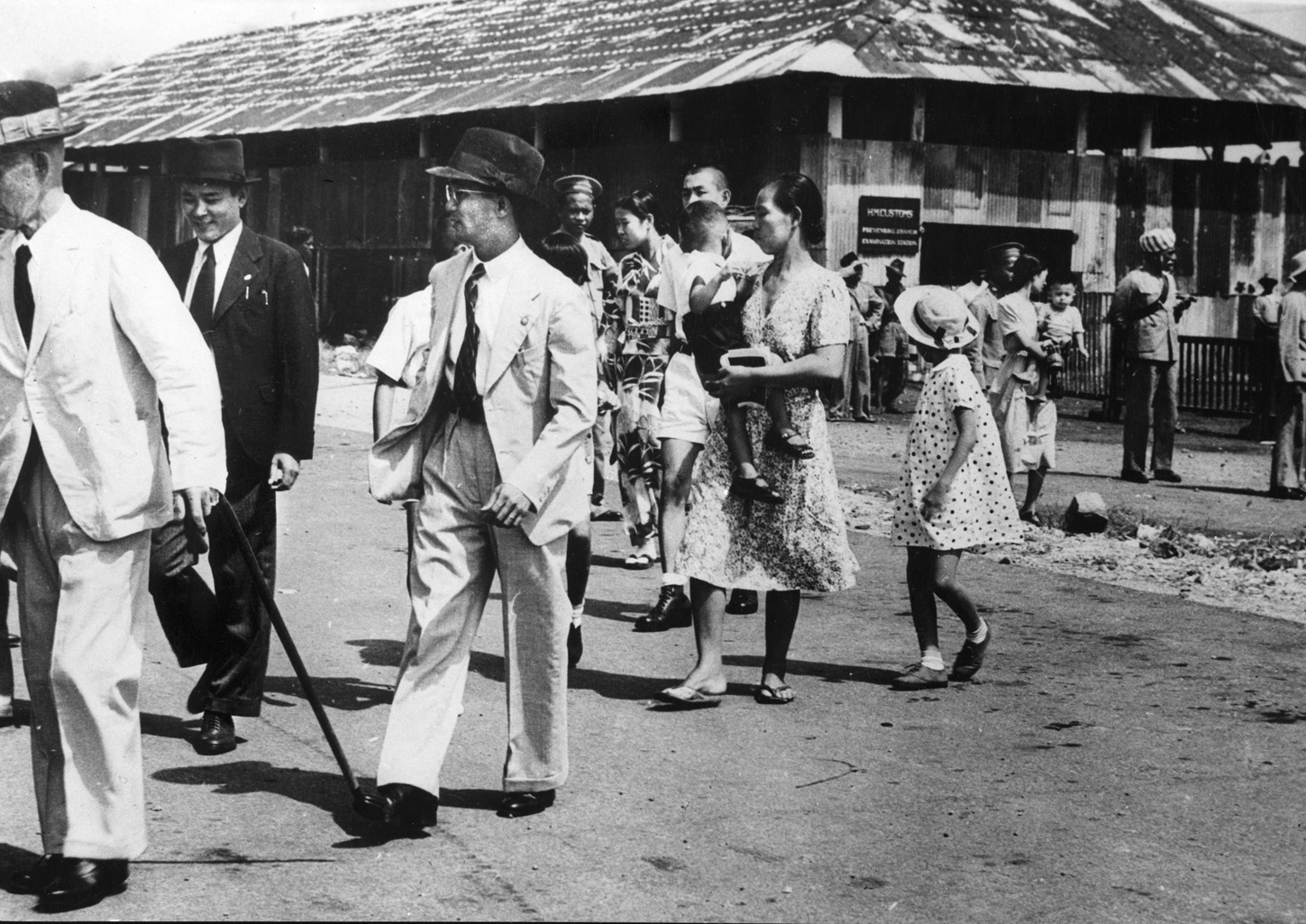
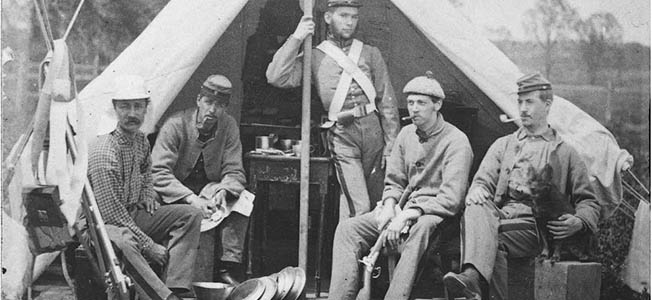
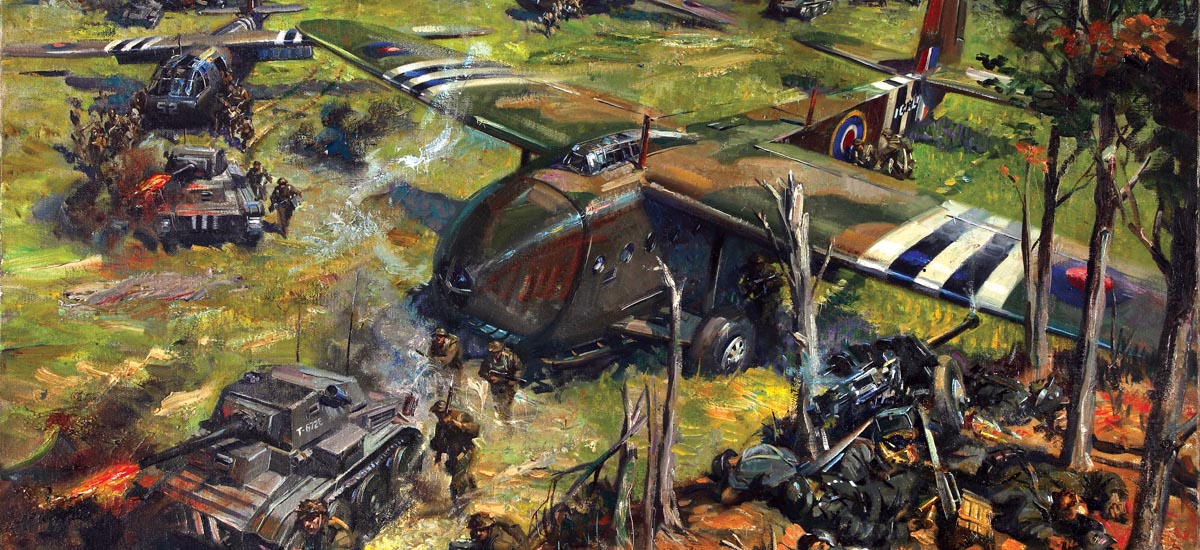
Join The Conversation
Comments
View All Comments